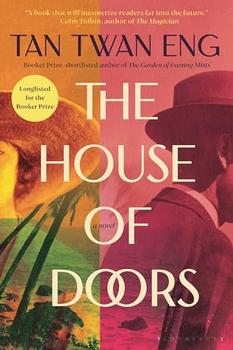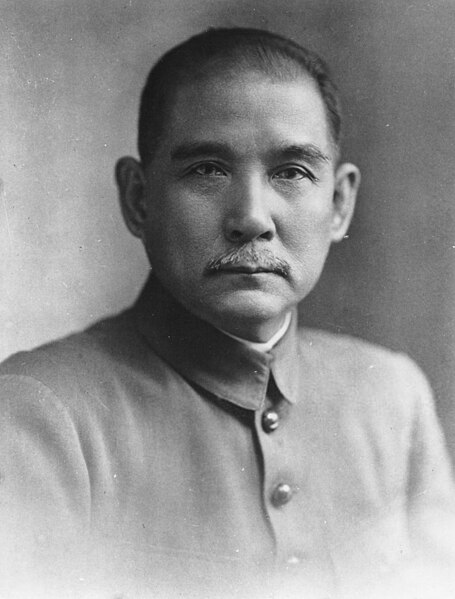Summary | Excerpt | Reading Guide | Reviews | Beyond the Book | Read-Alikes | Genres & Themes | Author Bio

This article relates to The House of Doors
 In the novel The House of Doors, Lesley Hamlyn volunteers as a translator for Sun Yat-sen's political movement in Penang, Malaysia. Sun Yat-sen is one of the foremost figures in Chinese political history. By leading China from an empire to a republic, he also became an important inspiration to other independence movements of twentieth-century Asia. Sun is often regarded as the father of modern China.
In the novel The House of Doors, Lesley Hamlyn volunteers as a translator for Sun Yat-sen's political movement in Penang, Malaysia. Sun Yat-sen is one of the foremost figures in Chinese political history. By leading China from an empire to a republic, he also became an important inspiration to other independence movements of twentieth-century Asia. Sun is often regarded as the father of modern China.
Sun Yat-sen was born in 1866 to a family living in a rural village in the southern province of Guandong. At age 10, he and his mother moved to the island of Maui, in Hawai'i, where his elder brother ran a successful farm. Sun took a great interest in the culture and ideas he encountered and absorbed at the local missionary school. This led to his conversion to Christianity. In 1886, Sun enrolled in a missionary-run college of Western medicine in Guangzhou, the great metropolitan hub of southern China. He graduated from the College of Medicine for Chinese in Hong Kong in 1892.
In 1894, Sun decided to leave his medical career and become a politician. Like many young Chinese intellectuals of his day, Sun resolved that nothing in China's conservative society could change without a political revolution. He believed that the old imperial system had to go. Sun reached out to Chinese communities around the globe who provided vital financial and strategic support for his revolutionary movement. His Western education and Christian faith also won him strong backing in Western business and missionary communities.
Exiled from China, Sun took the movement's base to Penang in 1910. He launched a fundraising campaign and gave a popular speech that raised a considerable amount of money. He and his supporters also started a newspaper in Penang.
Chinese history was about to take a sudden, monumental turn. In 1911, a revolt against the government led to the collapse of the Qing dynasty, ending over 2,000 years of imperial rule. Sun quickly returned to the country and assumed the role of provisional president of the new Republic of China. He soon handed over the reins of the government to an army general, Yuan Shikai, in hopes of creating unity, but was then forced out of China due to conflict with Yuan, who wanted to establish a new imperial order. Sun returned after Yuan died in 1916, and spent the latter years of his life attempting to regain political support and continue the revolutionary movement through work with the Nationalist Party. He succumbed to cancer in 1925. His legacy remains as alive as it was a century ago, celebrated in both mainland China and Taiwan, and venerated by Chinese communities all over the world in memorial pavilions, parks, streets, schools, and hospitals.
Portrait of Sun Yat-sen circa 1910s, via Wikimedia Commons
Filed under People, Eras & Events
![]() This "beyond the book article" relates to The House of Doors. It originally ran in November 2023 and has been updated for the
October 2024 paperback edition.
Go to magazine.
This "beyond the book article" relates to The House of Doors. It originally ran in November 2023 and has been updated for the
October 2024 paperback edition.
Go to magazine.
Your guide toexceptional books
BookBrowse seeks out and recommends the best in contemporary fiction and nonfiction—books that not only engage and entertain but also deepen our understanding of ourselves and the world around us.